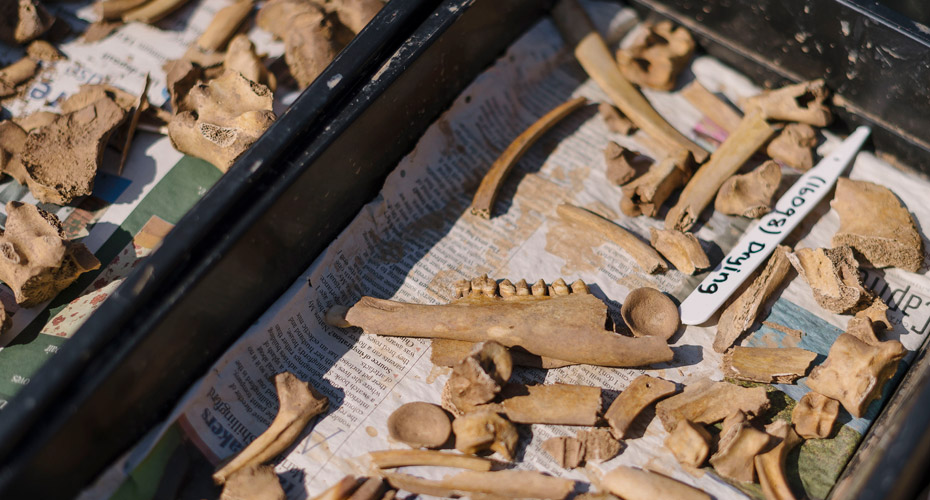Archaeology
![]()
Top 10 in the UK for Archaeology and Forensic Science
The Times and The Sunday Times Good University Guide 2024
![]()
Top 50 worldwide for Archaeology
QS World University Subject Rankings 2024
![]()
4th in the UK for internationally excellent Archaeology research
Based on research rated 4* and 3* in REF 2021
![]()
Applied experience and fieldwork opportunities in the UK and abroad
Degrees at Streatham Campus, Exeter
Archaeology at Exeter

Archaeology at Exeter is an exciting and varied subject combining fascinating academic study with practical, hands-on experience. You can study a diverse range of topics from human evolution, or the emergence of classical civilisations, to the creation of today’s landscapes.
Our approach to archaeology is vibrant and interdisciplinary, as we work closely with researchers in subjects including Ancient History, Anthropology, Biosciences, Geography and History. We will teach you to consider the evidence, assess it, and draw your own conclusions. You will become confident in expressing your ideas on paper and through presentations, while writing a dissertation and producing portfolios of coursework will teach you to work independently. You will be able to make use of our vast reference collections of artefacts, and we often use experiments in our teaching about ancient technologies (eg, flint knapping, pot making, bronze smelting and casting). We also encourage you to participate with the active, student-led Archaeology and Forensics Societies who arrange field trips, social events and excursions.
Our teaching programme covers the key aspects of British and European Archaeology, but our expertise extends across the globe with modules covering North and South American prehistory, North Africa and Asia. By joining our Archaeology Department, you will become part of a community where staff and students engage in projects all over the world. We currently have research links and field projects in the UK and throughout Europe, as well as across the world including Egypt, Kazakhstan, India, Sri Lanka, USA, Brazil, Argentina, Japan and China.
Our department has a relaxed, friendly atmosphere and you will benefit from small group teaching and plenty of contact with staff. We are situated in the heart of the diverse landscape of the West Country, close to some of Britain’s richest archaeological locations at Dartmoor, Exmoor and the Somerset Levels. We have well-established links within the South West, which include local and national museums, field units, country and national parks.
Our staff have broad research interests, covering prehistory and the ancient, Medieval and modern periods in Britain, Europe and worldwide. We have specialists in past environments, landscapes, settlements, burials and artefacts. You will benefit enormously from our research, being taught by high-quality academic staff, who are all internationally recognised in their fields. You will become part of a thriving research culture which feeds directly into your undergraduate teaching, as our staff develop exciting programmes, modules and field work opportunities. Our active research has contributed to the department’s international standing; we rank 3rd in the UK for worldleading or internationally excellent research in the 2014 Research Excellence Framework.
Choosing to study a BA Archaeology at the University of Exeter has been one of the most successful decisions of my life.
I was born in Romania but completed an International Baccalaureate in Canada before choosing a university and it was a difficult decision for me. But what really stood out and made me certain of my decision was the world-class teaching provided by an array of lecturers with very different backgrounds coupled with the beautiful campus. On top of this, I have been able to be a part of amazing opportunities such as the internship at the Digital Humanities Lab and participate in field projects as part of my degree in the United States and Romania. I have been so pleased with what the university has to offer that I decided to continue my studies through a Masters in Roman Archaeology, which I am very excited to start next year.
Ciprian
BA Archaeology



